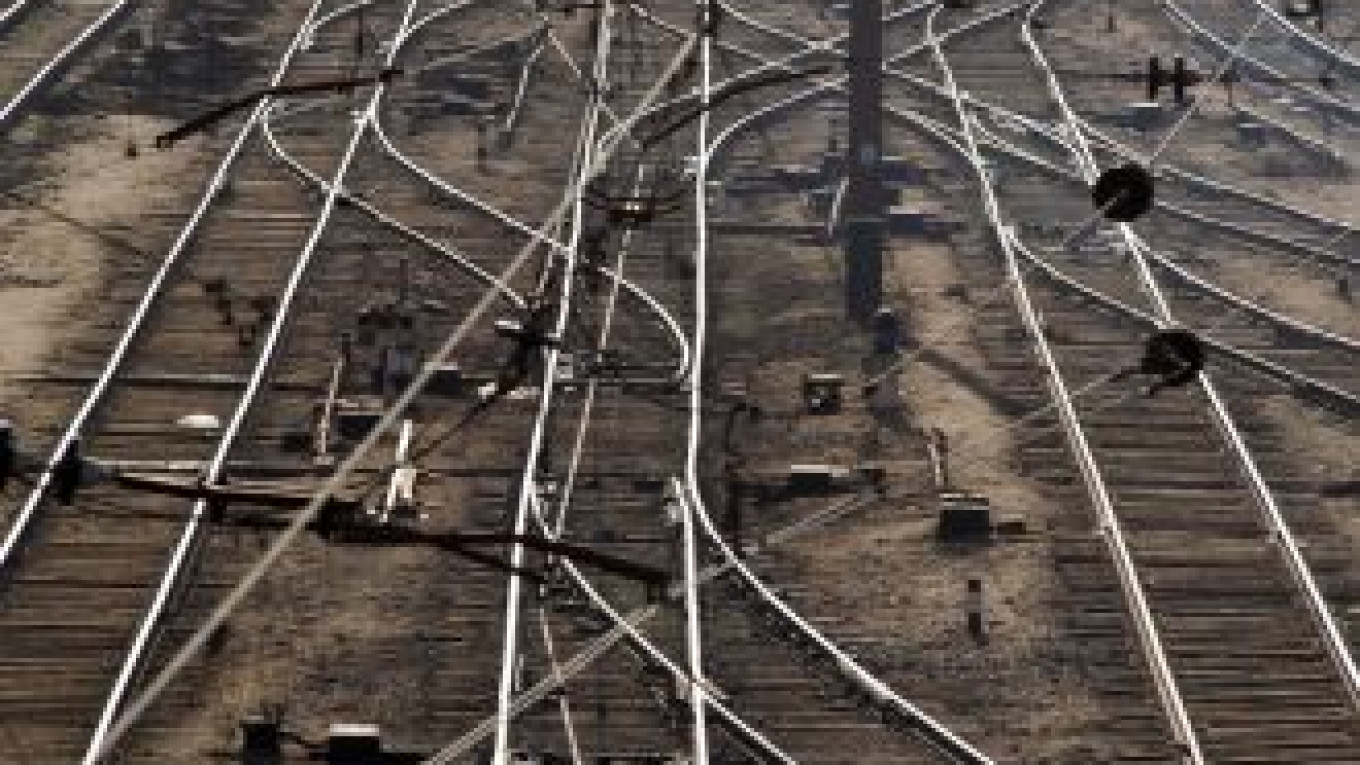The Finance Ministry said Monday that it would seek to cancel state subsidies of regional and local taxes on key infrastructure assets, including railroad tracks, trunk pipelines and power lines, starting in 2012.
The changes and other proposed amendments to the Tax Code will bring the budget an estimated 2.6 billion rubles ($85 million) per year, the ministry's press service told The Moscow Times.
Analysts said the move would help Finance Minister Alexei Kudrin narrow budget deficits forecast for the next several years by leaning on state-run companies such as Gazprom and Russian Railways.
The Finance Ministry's bill would gradually end subsidies of the regionally administered property tax and charge up to 1.1 percent on certain assets starting in 2012, it said in a statement. The changes will apply to railroad tracks, trunk pipelines and power lines as well as "technological components," the ministry said.
Federal highways will continue to be exempt from the property tax, which currently cannot exceed 2.2 percent for legal entities.
The bill follows President Dmitry Medvedev's suggestion in his June budget address "to optimize subsidies … and expand the tax autonomy of regional and local authorities," the ministry's press service told The Moscow Times.
The changes could raise costs for natural monopolies and, "as a result, increase tariffs for transportation of cargo and passengers using railroads, electric energy tariffs and wholesale price of natural gas," the press service said.
Alexei Sorokin, head of the Finance Ministry's tax department, told Interfax earlier Monday that the changes would be introduced gradually and that the tax could rise after 2012.
Last year, Russia had a budget deficit of 5.9 percent of gross domestic product, and it forecasts a 5.4 percent shortfall for 2010. The government has been considering higher taxes as well as a major privatization of stakes in 11 state-run companies to raise some $29 billion in 2011-13.
The Finance Ministry has repeatedly tried to raise taxes on the politically powerful oil and gas industry. Kudrin said in June that his "goal" was to get mineral extraction taxes on hydrocarbons up to 0.5 percent of GDP.
The property tax — applied to the value of the objects — marks a new approach to taxing Gazprom, which in July topped Fortune magazine's list of the world's most profitable companies.
The gas export monopoly boasts the world's longest network of trunk pipelines, stretching some 159,500 kilometers. Gazprom listed 3.3 trillion rubles ($108 billion) in transportation assets this year, but it does not break them down by type.
Trunk pipelines, however, would represent the majority of the assets. Applied to Gazprom's total transportation assets, the 1.1 percent tax would set the company back 36 billion rubles per year.
“The government is trying to patch up holes in the budget at the expense of the industries that have some reserve factor,” said Pavel Sorokin, a gas industry analyst at Alfa Bank.
"2012 is the election year. This is the year when it is planned to introduce an increase in mineral extraction tax for the oil sector and possibly a new, profit-oriented taxation regime for greenfield developments," said Karen Kostanian, head of Russia equity research at BofA Merrill Lynch.
"By that time, the state may need to find new ways to replenish the budget, and however small the increments may be, they will still be very helpful."
Staff writer Anatoly Medetsky contributed to this report.
A Message from The Moscow Times:
Dear readers,
We are facing unprecedented challenges. Russia's Prosecutor General's Office has designated The Moscow Times as an "undesirable" organization, criminalizing our work and putting our staff at risk of prosecution. This follows our earlier unjust labeling as a "foreign agent."
These actions are direct attempts to silence independent journalism in Russia. The authorities claim our work "discredits the decisions of the Russian leadership." We see things differently: we strive to provide accurate, unbiased reporting on Russia.
We, the journalists of The Moscow Times, refuse to be silenced. But to continue our work, we need your help.
Your support, no matter how small, makes a world of difference. If you can, please support us monthly starting from just $2. It's quick to set up, and every contribution makes a significant impact.
By supporting The Moscow Times, you're defending open, independent journalism in the face of repression. Thank you for standing with us.
Remind me later.






